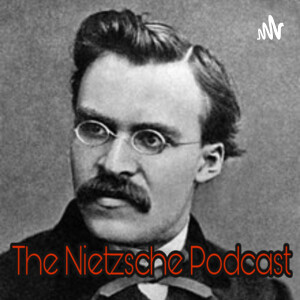
Pascal and Nietzsche are two names of monumental importance in the Western philosophical tradition, but rarely are their names mentioned together. At a glance, there is a wide gulf that separates the two, and seems to place them at irreconcilable odds. Pascal was a devout Christian, whose philosophical works concern the Christian faith: his most famous argument is the wager, which is a kind of apologetic device for bringing people into the faith. Nietzsche, on the other hand, carries out a philosophical project which is anti-Christian. He says he has no taste for faith in God, and that this faith is an indelicacy among thinkers.
Today, we will examine Pascal's life, and the basics of his philosophy. Then, we will compare these two malcontents of the Enlightenment. Both question the supremacy of human reason, and offer an alternative to the materialistic concerns of a secular society. Both were men afflicted with ill health, and who struggled with mental illness. But they come to completely contrasting views in their assessment of life. In spite of this, there are ways in which Pascal's influence may have lasting importance for understanding Nietzsche. In Daybreak, Pascal is a stand-in for Christian hatred of mankind, who may have shaped Nietzsche's psychological analysis of Christianity. And in the eternal recurrence, we arguably find a variation on Pascal's Wager. While Pascal urges us to bet on God, Nietzsche's invitation is to bet on the world.
“The Only Logical Christian”: Nietzsche’s Critique of Pascal by Brendan Donnellan, available on JSTOR: https://www.jstor.org/stable/10.5149/9781469656557_oflaherty.12?seq=10
view more
More Episodes
48: At Noon
 2022-08-02
2022-08-02
 2022-08-02
2022-08-02
47: The Meaning of Life
 2022-07-26
2022-07-26
 2022-07-26
2022-07-26
Q&A #4
 2022-07-19
2022-07-19
 2022-07-19
2022-07-19
44: Cartesian Dualism
 2022-06-28
2022-06-28
 2022-06-28
2022-06-28
43: Nihilism
 2022-06-21
2022-06-21
 2022-06-21
2022-06-21
42: Goethe's Faust, part 2
 2022-06-14
2022-06-14
 2022-06-14
2022-06-14
41: Goethe's Faust, part 1
 2022-06-07
2022-06-07
 2022-06-07
2022-06-07
39: The Genius of the Heart
 2022-05-17
2022-05-17
 2022-05-17
2022-05-17
38: The Genius of the Species
 2022-05-10
2022-05-10
 2022-05-10
2022-05-10
Q&A Episode #3
 2022-04-29
2022-04-29
 2022-04-29
2022-04-29
35: The Spirit of Music
 2022-04-20
2022-04-20
 2022-04-20
2022-04-20
34: Self-Control
 2022-04-12
2022-04-12
 2022-04-12
2022-04-12
33: The Overman, part 2: The Convalescent
 2022-04-05
2022-04-05
 2022-04-05
2022-04-05
012345678910111213141516171819
Create your
podcast in
minutes
- Full-featured podcast site
- Unlimited storage and bandwidth
- Comprehensive podcast stats
- Distribute to Apple Podcasts, Spotify, and more
- Make money with your podcast
It is Free
- Privacy Policy
- Cookie Policy
- Terms of Use
- Consent Preferences
- Copyright © 2015-2024 Podbean.com






